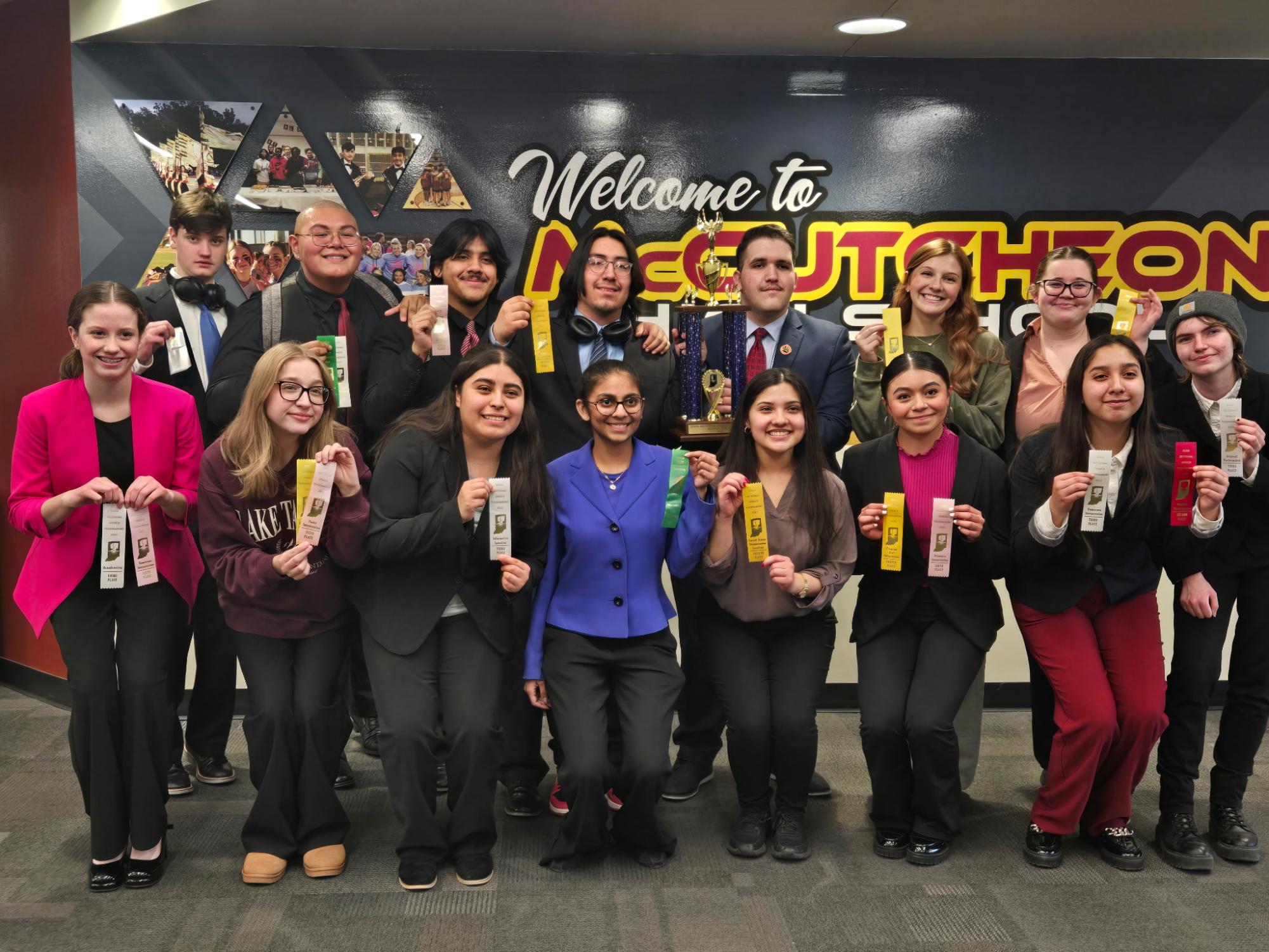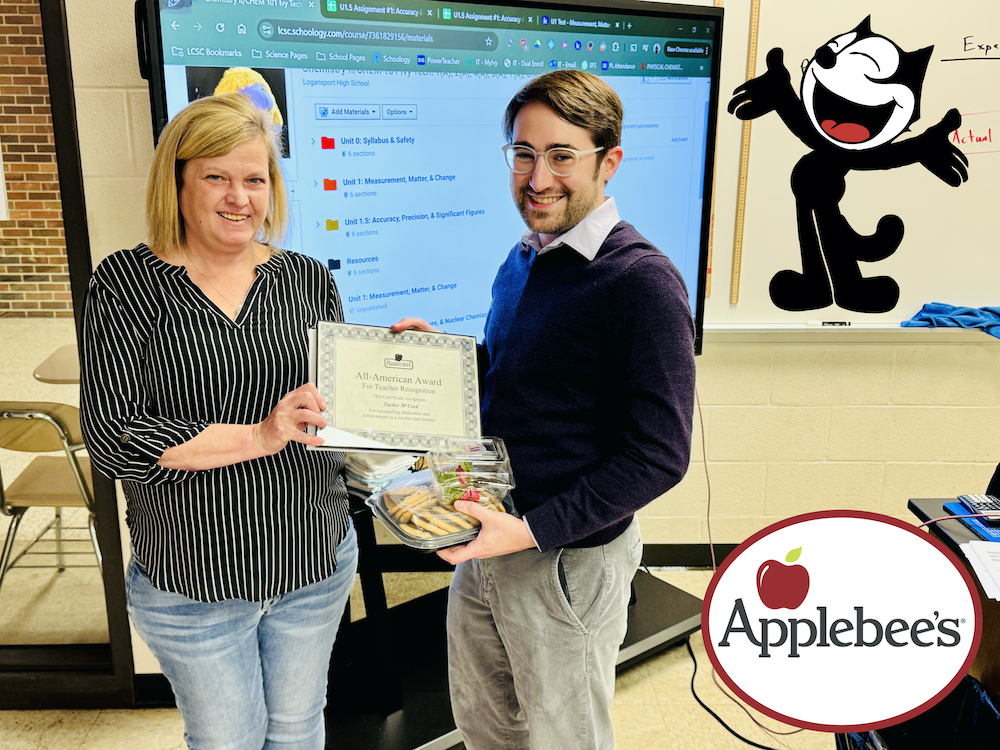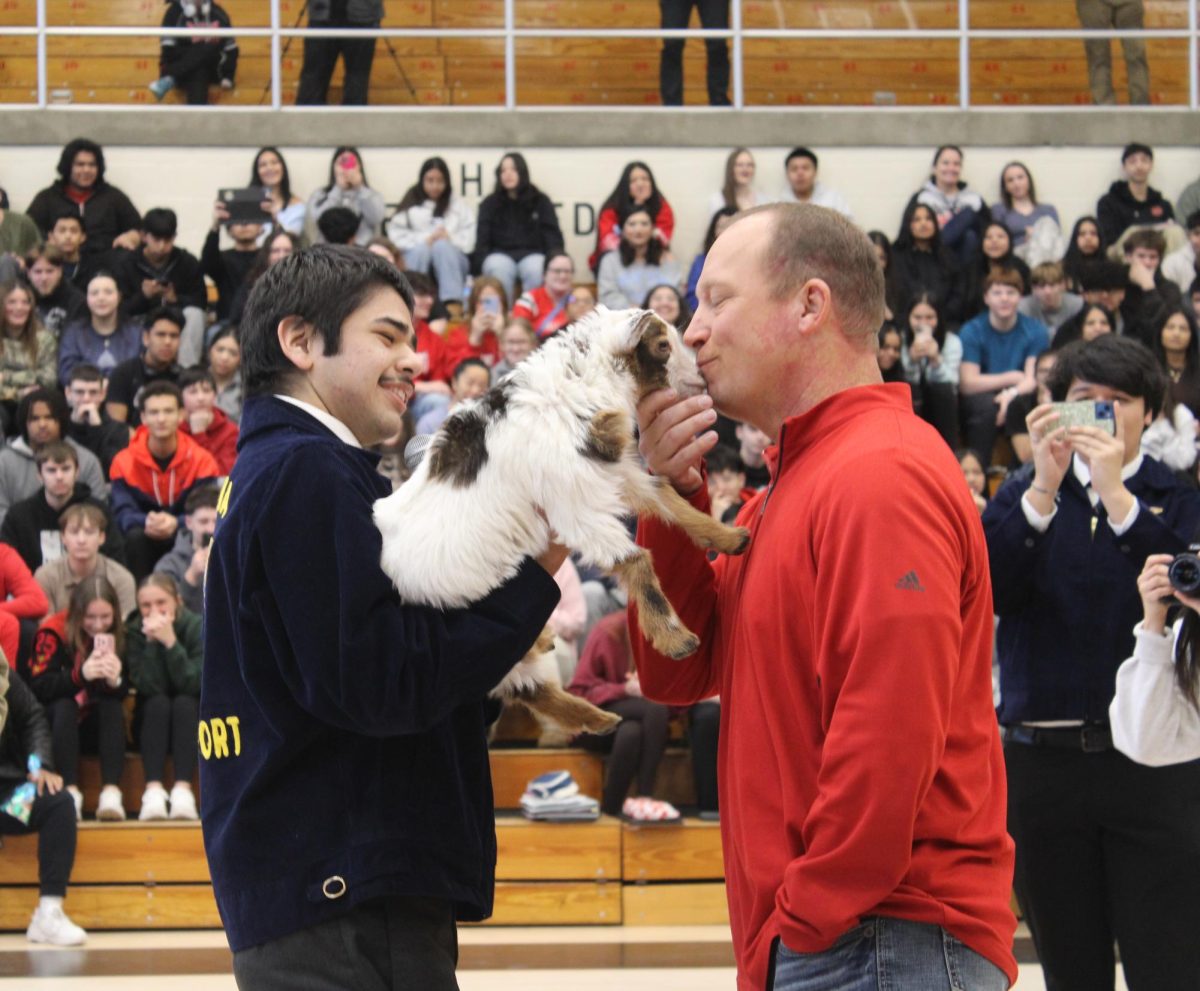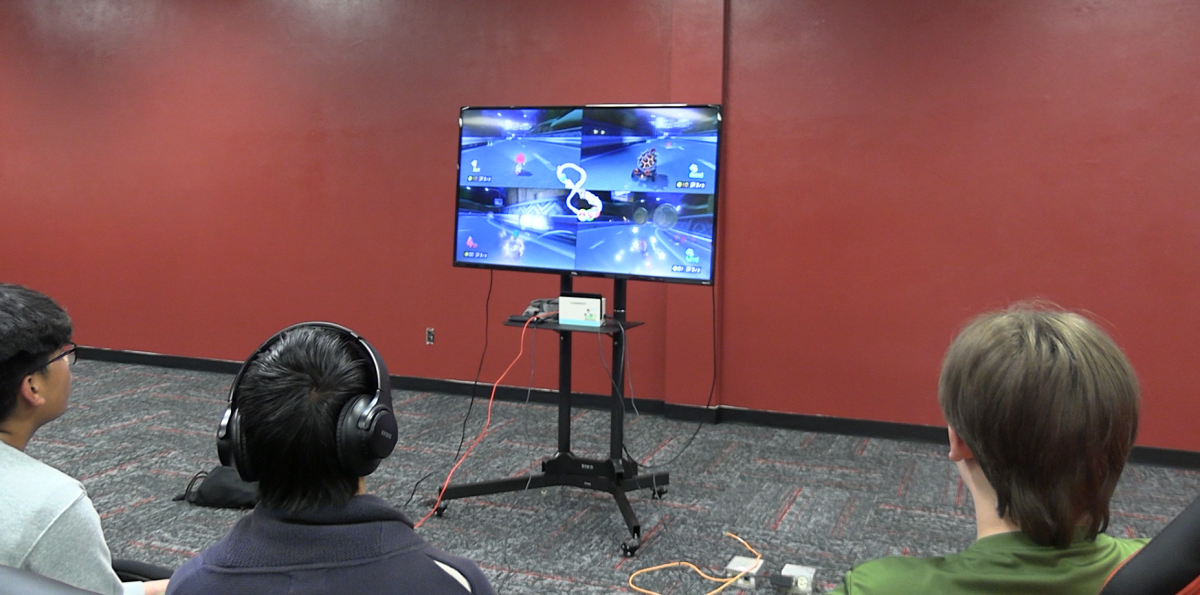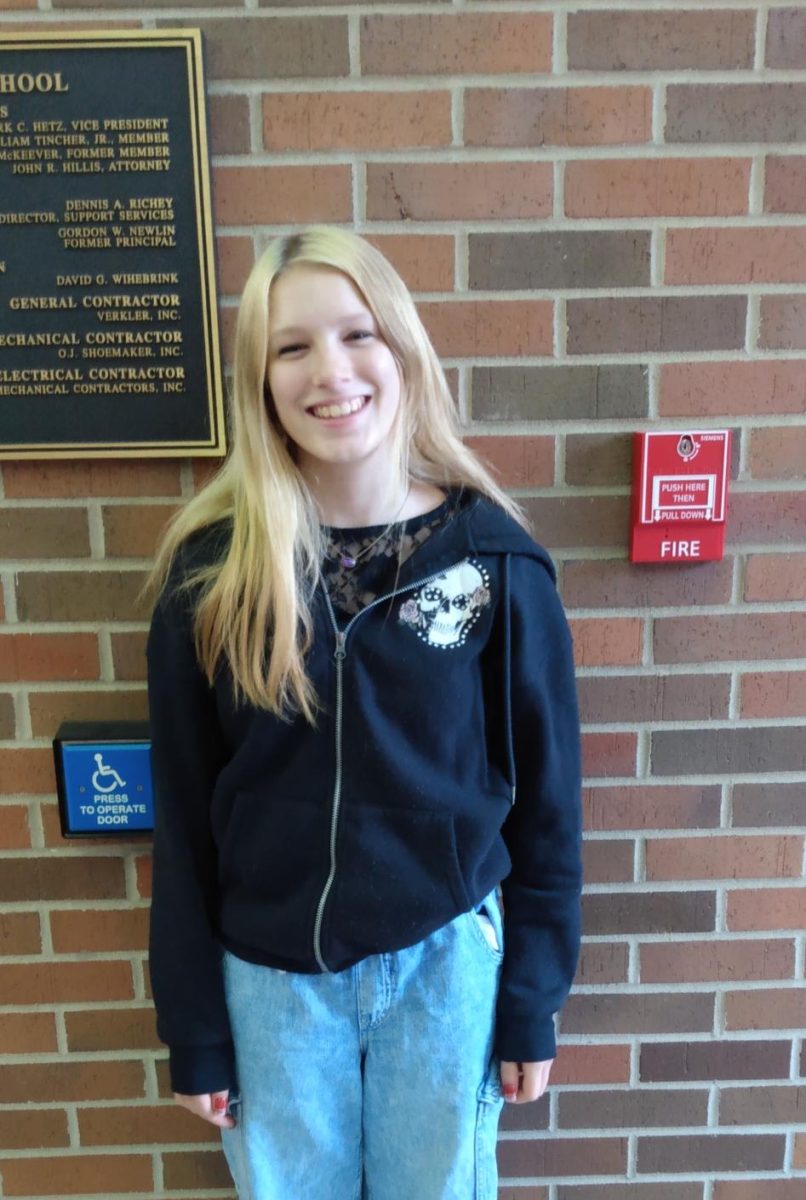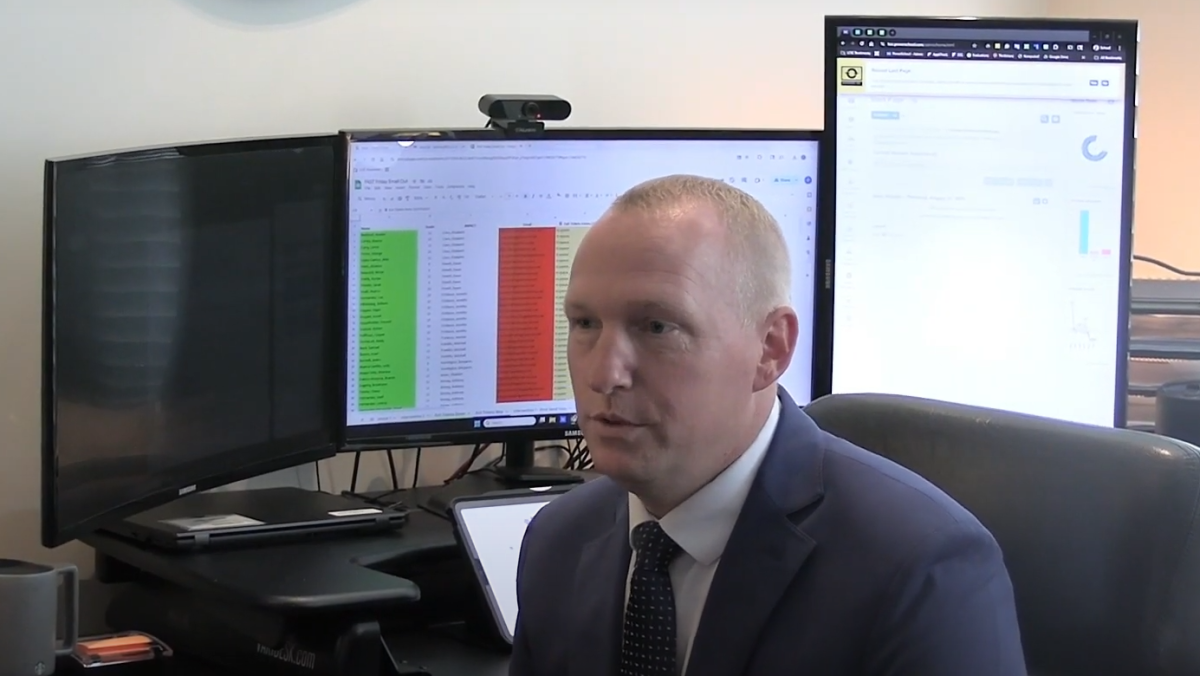On March 8, the speech team is heading towards Hamilton Southeastern High School. After winning second place at sectionals, the speech team has been hard at work preparing for the state meet. Out of the forty students sent to sectionals, seventeen students won ribbons and advanced to the finals.
Junior Madison DeHaven explains the hardest thing about competing in the speech team.
“For me, the hardest part about competing is dealing with my anxiety mid-round,” DeHaven said.
Senior Aiden Snoeberger says the hardest thing is keeping consistent and smooth throughout his event.
“In broadcasting, even a stutter or a mispronunciation of a word can set you back in the eyes of the judges,” Snoeberger said. “So, being able to get through a five-minute speech without a slip-up can be challenging during competition.”
As the season gets close to an end, students going to finals have been improving their performance even further.
“I always go into practice with an open mind and willing to change my piece or performance,” DeHaven said.
Another way of improving their performance is by constantly practicing their pieces repeatedly.
“I’m improving my performance by writing my piece as soon as I possibly can and practicing it over and over,” Snoeberger said. “Making sure that each time I practice, I work on my inflection and my consistency throughout the entire piece. This will help my speech be smoother during competition.”
Ashley Hayes, a sixth-grade teacher and assistant speech coach, explains that she wished to have the students pick their pieces to be ready to practice at the end of October.
“Our season is so long that we don’t really start practicing until the end of October or early November, and we are still trying to get pieces at that point,” Hayes said. “So, it’s really difficult to really tailor down each piece and help each specific student because we had so many students this year.”
Students who are going to finals have been polishing and perfecting their performances.
“For me, it involves a lot of repetitive practicing, confidence in my knowledge, and great support from amazing coaches who will be there no matter what happens in a round,” DeHaven said.
Some ways for students to perform their best can be repetition, though others just need to drink water.
“Drinking a lot of water and using my voice a lot in the morning helps me perform my best,” Snoeberger said. “It helps warm up my voice in the morning, so it sounds better when I perform for the first round. Drinking a lot of water keeps my throat from being dry and helps my voice sound better throughout the day.”
A lot of the students going to finals are very experienced in speech, which allows the coaches to help them perfect their pieces and also gives them the confidence to perform.
“There are a lot of different things that they can do as far as that, but some of it is their bookwork, their confidence, the way they stand, the way that they dress, the respect that they show their judges and fellow competitors,” Hayes said. “Also, their movement within, their rate of speaking and their volume. There is so much to it, but the most important thing is making sure that they have the confidence thing they need because they deserve to be there.”
Some students have regrets regarding the speech team.
“One thing I regret is not joining speech sooner,” DeHaven said. “Speech has helped me so much with my confidence and my performance abilities.”
Other students don’t have any regrets regarding their time on the speech team.
“I’ve done a lot of different events, and though I really found my calling my senior year, I don’t regret the other events I did,” Snoeberger said. “They shaped my path through speech, and I have a lot of good memories associated with each. Speech has been one of the highlights of my time in high school, and I’m going to miss it when I graduate.”
Hayes explains that the best thing that students can do is memorize their pieces very well.
“For students to perform their very best, knowing their piece fully inside out even if they can rely on a book having them fully memorize their piece really helps us at practice because then we can get more nitpicky with the things that we need them to change up,” Hayes said. “For a student to do their very best they have to know what they want to do, they have to know the event they want to do, the piece that they want to do and even memorize it as quickly as possible.”
Going to state for speech involves juggling both schoolwork and practice.
“One major inconvenience for me is the time both things take up,” DeHaven said. “Being a student is hard, especially with extracurricular activities, balancing time for practice and my school work, but it is so worth it.”
Some students do other extracurricular activities that complicate school and speech finals for them.
“The inconvenience of going to school and going to state at the same time is that I still need to find time to write my stuff for speech and do my school work,” Snoeberger said. “I get a lot of homework, and I do a lot of other extracurriculars. Finding time to write extra stuff for speech can be a challenge.”


